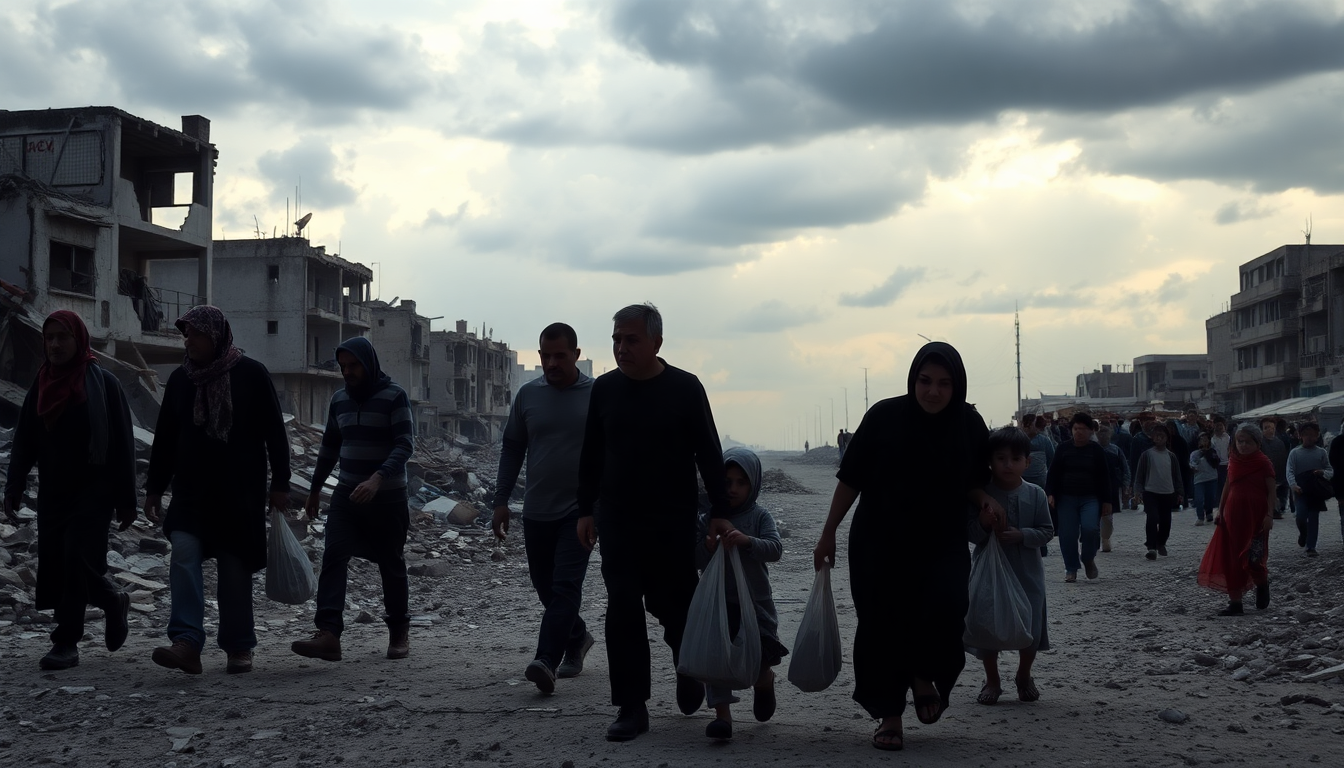Table of Contents
The ongoing humanitarian crisis in Gaza has pushed many families to the brink of despair as they desperately search for missing loved ones. In the chaos of war, individuals embark on perilous journeys to reach aid distribution points, often never to return.
The situation has become dire, with families enduring heart-wrenching waits for news, a suffering compounded by forced starvation and violence. How can we even begin to understand the weight of this anguish?
In Search of Food: The Tragic Stories of the Missing
Take the story of Khaled Obaid, for example. He has been searching for his son Ahmed for two long months. Ahmed left their makeshift tent in Deir-el-Balah on a quest for food for his family, which includes his recently widowed sister.
Khaled’s desperate hope that the next vehicle passing by might bring his son home illustrates the daily anguish faced by countless families in the region. Can you imagine the fear and uncertainty that grips him every day?
Khaled’s attempts to report his son’s disappearance to international organizations have been met with silence.
This response, or lack thereof, reflects the overwhelming crisis in Gaza, where families are forced to choose between starvation and risking their lives amidst gunfire from Israeli forces. The United Nations has called these aid distribution points “death traps,” a term that resonates painfully with those who have lost loved ones while searching for sustenance.
It’s a heartbreaking reality, isn’t it?
Since aid operations began in late May, nearly 1,400 people have reportedly lost their lives at these sites. This staggering statistic underscores the life-threatening risks faced by those seeking help. While the international community acknowledges the humanitarian crisis, meaningful assistance has been painfully absent, leaving families like Khaled’s in a state of perpetual fear and loss.
What will it take for the world to act?
The Harsh Reality of Starvation and Violence
As the situation in Gaza deteriorates, the stark choice between survival and disappearance becomes increasingly evident. Reports indicate that many who set out to find food meet tragic ends, often falling victim to violence at the very locations meant to provide relief. Human rights organizations have documented countless cases where individuals went missing only to be found later, killed under circumstances that highlight the brutal reality of life in Gaza. How many more lives must be lost before change occurs?
The United Nations has reported that over 80 adults have died from starvation in just the past five weeks. This grim statistic serves as a somber reminder of the human cost of the ongoing conflict. Meanwhile, the number of trucks delivering aid remains woefully inadequate, with only 84 trucks entering Gaza each day, far short of the 600 needed to meet basic needs. This alarming discrepancy raises critical questions about the effectiveness of humanitarian efforts and the responsibilities of those in power.
In light of escalating violence, Israeli leadership has reaffirmed its military objectives, complicating matters further. Prime Minister Netanyahu’s commitment to eliminate threats from Gaza has resulted in intensified attacks, leading to more loss of life. The international community watches as the humanitarian crisis unfolds, yet decisive action remains frustratingly elusive. What does it say about us if we stand idly by?
The Call for Urgent Humanitarian Action
The ongoing humanitarian crisis in Gaza has sparked urgent calls for action from various international organizations. UNICEF has highlighted the devastating impact of the conflict on children, with an average of 28 children dying each day from bombardments and malnutrition. The organization stresses the critical need for immediate access to food, water, and medical care to alleviate the suffering of the population. How can we turn a blind eye to this suffering?
The Palestinian Foreign Ministry has urged the UN Security Council to intervene and enforce a ceasefire, citing the dire conditions faced by millions in Gaza. The call for a two-state solution echoes the sentiments of many who believe that a sustainable resolution is crucial for the future of the region. Until that day comes, families like Khaled’s will continue to endure the agonizing wait for news of their loved ones, trapped in a cycle of violence and desperation. Will we allow them to suffer in silence?
In summary, the stories of those lost in the search for food in Gaza reflect a broader humanitarian disaster. The international community must confront the urgent need for action to address the root causes of this crisis and provide meaningful support to those affected. How can we stand by when there’s so much at stake?





